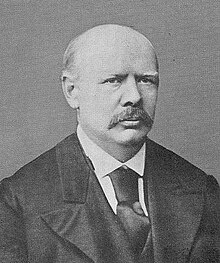Loading AI tools
19th-century German musical scholar From Wikipedia, the free encyclopedia
Rudolf Westphal (3 July 1826 – 10 July 1892) was a German classical scholar.
Rudolf Westphal | |
|---|---|
 Rudolf Westphal | |
| Born | 3 July 1826 Obernkirchen, Germany |
| Died | 10 July 1892 (aged 66) |
| Nationality | German |
| Occupation | musical scholar |
Westphal was born at Obernkirchen in Schaumburg. He studied at Marburg and Tübingen, and was professor at Breslau (1858–1862) and Moscow (1875–1879). He subsequently lived at Bückeburg, and died at Stadthagen in Schaumburg-Lippe on 10 July 1892.[1] Westphal devoted his life in translating and interpreting the works of Aristoxenus. He then applied Greek theories of poetic meter to eighteenth- and nineteenth century music.[2]
Westphal was a man of varied attainments, but his chief claim to remembrance rests upon his contributions on Greek music and metre. His chief works were:
He made translations of Catullus (1870) and of Aristophanes' Acharnians (1889), in which he successfully reproduced the Dorisms in Low German.[1]
Seamless Wikipedia browsing. On steroids.
Every time you click a link to Wikipedia, Wiktionary or Wikiquote in your browser's search results, it will show the modern Wikiwand interface.
Wikiwand extension is a five stars, simple, with minimum permission required to keep your browsing private, safe and transparent.